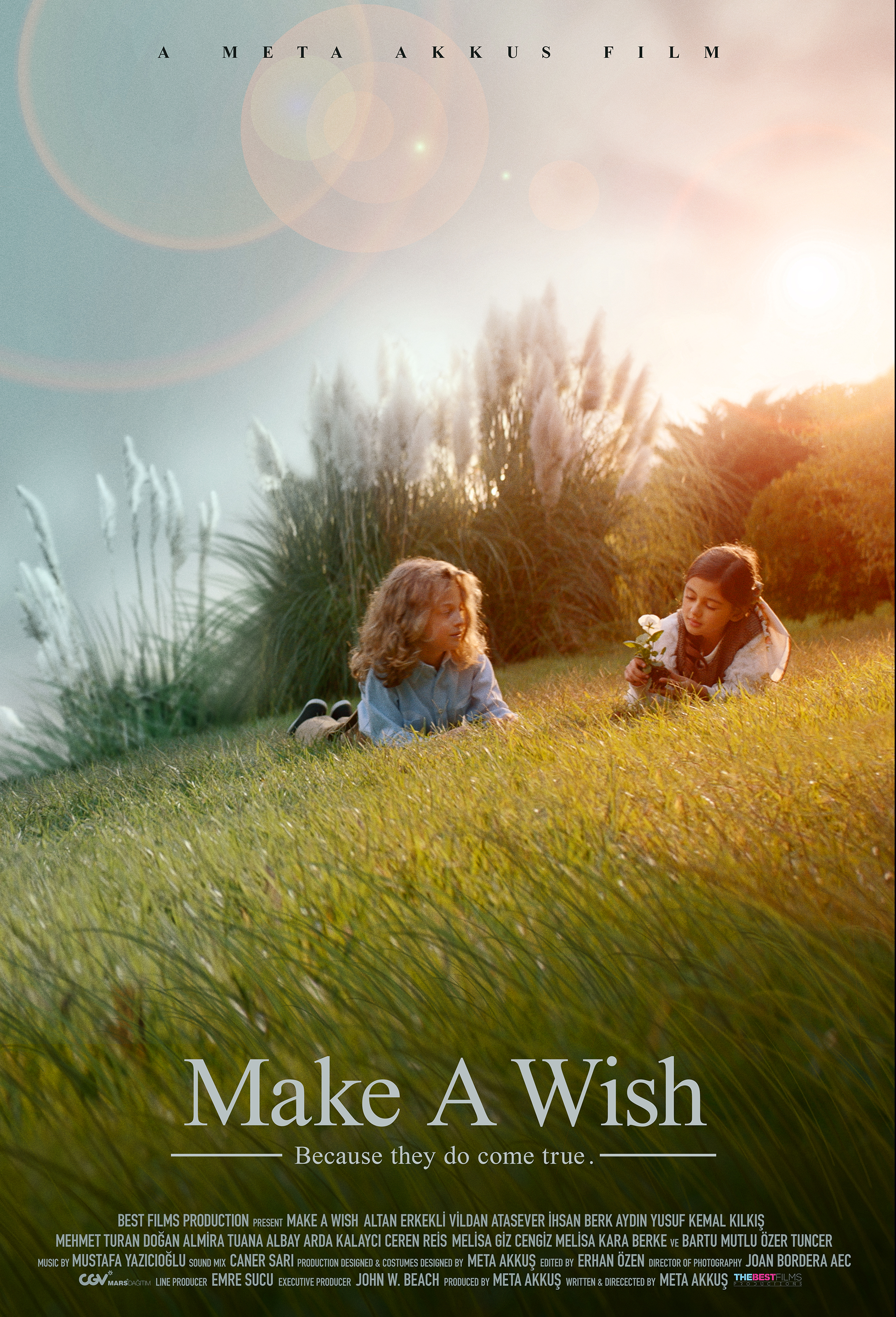Eye For Film >> Movies >> Make A Wish (2022) Film Review
Make A Wish
Reviewed by: Jennie Kermode

Adults often think of children as lucky because they don’t have many responsibilities, but the flip side of that is that they don’t have much control over their lives, and that can be really difficult to cope with. Kaan (Mehmet Turan Dogan) is really happy in his country home, playing in the fields with friends and racing boats along the river. When he learns about his parents’ plans to move to Istanbul, his whole world is shattered. He desperately tries to find a way to wield some influence, to change the situation.
On the same day that he hears the news, Kaan celebrates his birthday, and receives from his grandmother a storybook which his uncle used to read. His parents decide to read it to him to try to restore his confidence and distract him from his worries, and so we get one story nested inside another.
The story focuses on Berke (Ihsan Berk Aydin), a boy of a similar age who lives in a breathtakingly beautiful city high above the clouds (actually the historic city of Mardin, near the Syrian border). Racing through its cobbled streets in their sky blue uniforms, he an his friends appear to live idyllic lives, but in fact he’s being bullied by the heavy-set, perpetually glaring Hasan (Yusuf Kamal Kilkiş), a boy whose hangers-on respectfully refer to him as ‘boss’. Life is miserable for Berke until he begins talking to his grandfather, who tells him about the power of wishes. This leads to his acquisition of an apparently magical turtle, named Ninja (some modern stories also pass through generations), who gives him the courage to stand up for himself and the ability to make wishes come true. Soon he’s in high demand – but does the real power lie within the turtle, or within himself?
Aimed at a young audience, this is a story with a very simple philosophy. It will only go so far with children who have experienced problems which can’t be overcome by the will, but it has a strong message for others who simply need to develop faith in themselves. A slightly more nuanced take emerges when Berke’s grandfather takes him to visit a series of different religious leaders who share their thoughts on the importance of self-belief and on how trying to do good in the world can help to make it a better place generally.
There’s also some slightly more challenging material to be found in the film’s various subplots. When Berke’s status at school improves, he’s quick to discard his old friends in favour of hanging out with the cool kids, and to ignore the girl who has persistently had his back in order to spend time with one he thinks is pretty – decisions for which there will be a price to pay. Kaan, meanwhile, comes to understand that getting what he wants might mean that his mother can’t have something that really matters to her; and she, in turn, has to come to terms with the jealousy she feels over him being given a book which was always kept away from her.
There’s a hint, in the latter case, that being able to achieve anything one wishes is a power more easily granted to boys than to girls. if that’s so, however, there is also a sense of generational change. Kaan’s parents seem to have a very equal relationship. The young female characters are all assertive in their different ways. This helps to make the children’s interactions feel very natural, their social landscape modern and relatable, even if it’s a little on the gentle side. Nobody suffers worse than bumps and bruises here. The distressing things which the children have to deal with are psychological and everything is resolved in the end, in ways which illustrate that acquiring power and acquiring responsibility go hand in hand.
Reviewed on: 12 Dec 2022















